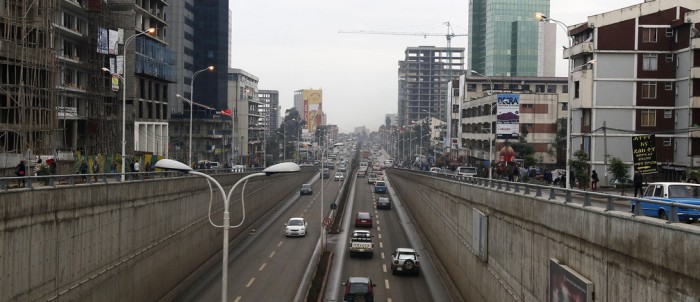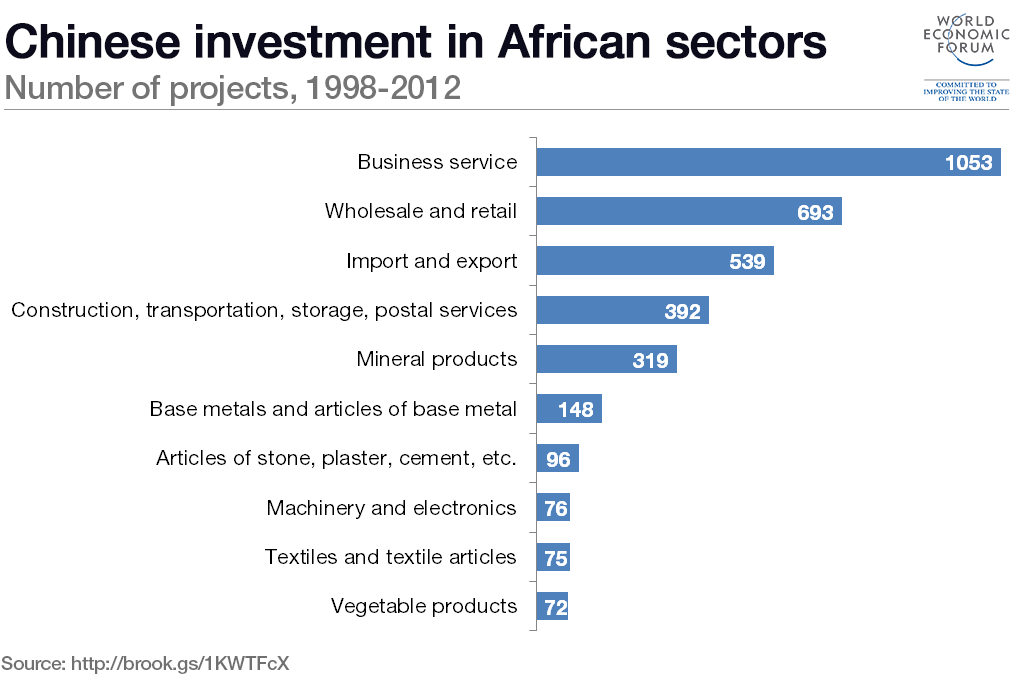When it comes to relations with China – and development strategies more generally – there are two opposing camps in Africa. But the approach that will bring the most progress is a “middle passage” that smooths contradictions and offers a balanced, accommodative, and pragmatic vision behind which Africans can unite.
On one side of the issue are China optimists. Cooperation with China, they argue, could enable Africa to chart its own development course, independent of Western policy prescriptions. This group is sympathetic to the “Beijing model” of governance, which focuses on national sovereignty and state control.
On the other side are China pessimists. They worry that the dynamic in Sino-African relations would always favor China. They prefer the West’s democracy-oriented approach, which emphasizes individual rights, underpinned by the free market agenda embodied in the so-called Washington Consensus.
The third group comprises the “China accommodators,” who combine the optimists’ goals with the pessimists’ wariness. They emphasize the need for a common African strategy toward China that minimizes the relationship’s asymmetries. Represented by the New Partnership for Africa’s Development (NEPAD), the accommodators champion democracy, the rule of law, and human rights; but, like China, they oppose Western interference.
One reason that the principle of non-interference is so critical is that African countries, like China, have long suspected a distinct Western bias in the conception of “fundamental human rights.” For example, as Western countries increasingly move to protect gay rights, the expectation has arisen that aid recipients follow suit, placing such rights above the “national rights” of the government. In 2014, the United States and Europe cut aid to Uganda, owing to a bill imposing penalties on homosexual activities.
A similar bias is evident in criticism by the West – and by Africa’s pro-Western China pessimists – of China’s so-called resource diplomacy in Africa. After all, China’s approach is no different from America’s long-standing oil-based relationships with countries like Saudi Arabia. And it is not as if the historical involvement in Africa of revered democracies like France was shaped by the values of “liberty, equality, and fraternity.”
In this context, while it is obviously critical that African countries protect their citizens’ individual rights, external views of what constitutes such a right should not trump legitimate sovereign authority. Similarly, international law should not create space for some countries to criticize and punish other countries regarding issues that are settled in accordance with domestic democracy and law. This includes the selective application of law by the International Criminal Court.
Another clash that NEPAD aims to resolve is that between economic rights, or “the right to bread,” which the Beijing model supporters put first, and political rights, or “the right to vote,” emphasized by the pro-Western camp. Here, the key is sequencing.
Given that a starving person would most likely give up their vote in exchange for some bread, one can surmise that a certain level of prosperity must be achieved before political rights become the top priority. And, however committed the China pessimists are to free markets, there is no denying that China’s state-controlled economy has lifted millions of people out of poverty and created a rapidly burgeoning middle class. This suggests that African countries, too, would benefit from a similar focus on economic growth, which will demand engagement with dynamic economies like China’s.
In fact, while the pessimists may not like the idea of closer ties with China, the reason it is necessary – economic globalization – actually derives from the Washington Consensus principles that they so cherish. In any case, once a strong middle class has been established, the focus can shift toward building a credible and sustainable liberal democracy.
The need for a two-pronged approach to development, incorporating elements of the Beijing model and the Washington Consensus, has been underscored by the outcome of the Arab Spring revolts of 2011. A lack of economic opportunities was a major driver of the pro-democracy demonstrations in Tunisia, Egypt, and others. But the belief that the right to vote would support the right to bread did not quite work out.
In fact, despite the overthrow of authoritarian regimes, Egypt has so far proved unable to build credible democratic governments or enforce the rule of law effectively, change in Tunisia remains tenuous, and Libya is substantially worse off – economically and politically – than it was before 2011. Perhaps if sovereign rights had been better respected, with outside powers supporting consensus-building processes instead of coups d’état, political breakthroughs could have been achieved, opening the way for economy-boosting initiatives against relatively stable backgrounds.
Yet the West seems not to have learned its lesson. Indeed, it has long demanded that Syrian President Bashar al-Assad cede power before a credible peace process can begin. Though Western leaders have softened their position in recent months, the damage has been done: Uncertain of his physical survival, Assad unleashed a horrific civil war, from which the Islamic State has benefited considerably. And he remains in power.
None of this is to condone the repressive policies of the authoritarian leaders – from Egypt’s Hosni Mubarak to Libya’s Muammar el-Qaddafi – whose regimes were overthrown. The point is rather to emphasize the potential benefits of a more stability-oriented approach, in which the drive to secure political rights is reconciled with the principles of respect for national and sovereign rights reflected in the Beijing model.
China’s growing involvement in Africa is important not just for the direct economic benefits it can provide, but also for the impact it can have on development strategies. With an approach that merges Chinese and Western models – balancing human rights with national interests, individual rights with sovereign authority, and political rights with economic goals – African countries could enhance their development prospects considerably.


